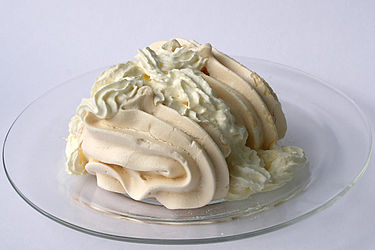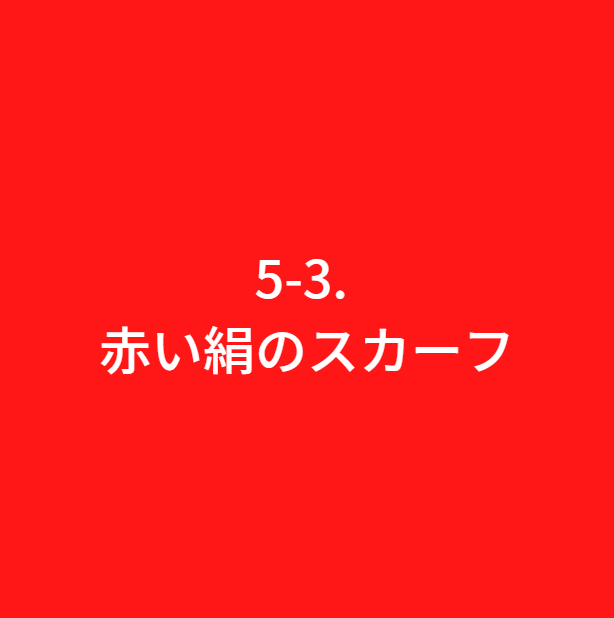『ルパンの告白』英文/和訳【5-3. 赤い絹のスカーフ】
※カラフル対訳で紹介している作品はすべてパブリックドメインです。
このサイトで使われている作品のすべては著作権の切れた名作などの全文を電子化して、インターネット上で公開しているProject Gutenberg(プロジェクト・グーテンベルク)、LibriVox(リブリヴォックス、朗読図書館)の作品を出典としています。
翻訳者:kie_takazawa
“On the 17th of October, 1599, on a warm and sunny autumn day … Do you follow me?…
「1599年10月17日、暖かく晴れた秋の日…僕の言っていることが分かるかい?
But, now that I come to think of it, is it really necessary to go back to the reign[統治] of Henry IV, and tell you all about the building of the Pont-Neuf?
でも、考えてみれば、アンリ四世の治世まで遡って、ポン・ヌフ橋のことをすべて話す必要があるだろうか?
No, I don’t suppose you are very well up in[~に詳しい] French history; and I should only end by muddling you.
いや、君はフランスの歴史にはあまり詳しくないだろうから、かえって混乱させてしまうかもしれないな。
Suffice[十分である] it, then, for you to know that, last night, at one o’clock in the morning, a boatman passing under the last arch of the Pont-Neuf aforesaid,[前述の]
それなら、これだけ知っていたら十分だろう… 昨夜、午前1時頃、さっき言ったポン・ヌフ橋の最後のアーチの下を通りかかった船頭が、
along the left bank of the river, heard something drop into the front part of his barge.[平底の船舶]
川の左岸に沿って、はしけ の前部に何かが落ちるのを聞いたんだ。
の前部に何かが落ちるのを聞いたんだ。
The thing had been flung[投げ飛ばす] from the bridge and its evident destination[目的地] was the bottom of the Seine.
それは橋から投げ出されたもので、その行きつく先は明らかにセーヌ川の底さ。
The bargee‘s dog rushed forward, barking, and, when the man reached the end of his craft,[船舶]
はしけにいた犬は吠えながら突進して走っていった。男が船の端に行ってみる[着く]と、
he saw the animal worrying a piece of newspaper that had served to wrap up[包むのに役立った] a number of objects.[物体]
その犬がいくつかの新聞紙の包みを咥えて振り回しているのが見えた。
He took from the dog such of the contents[内容物] as had not fallen into the water, went to his cabin and examined them carefully.
彼は、水中に落ちていない物を犬から取り上げ、船室に行き、注意深く調べた。
The result struck him as interesting; and, as the man is connected with one of my friends, he sent to let me know.
その結果が彼の興味をそそり、彼が僕の友人の一人と関係があったことから、僕に知らせてきたんだ。
This morning I was waked up and placed in possession of[~を所有する] the facts and of the objects which the man had collected. Here they are.”
今朝、僕は起こされると、その事実を知ることとなり、彼が集めた品々を手にすることになった。ほら、ここに」
He pointed to them, spread out on a table.
ルパンはテーブルの上に広げられたそれらを指差した。
There were, first of all, the torn[引き裂く] pieces of a newspaper.
まず、新聞の切れ端が数枚。
Next came a large cut-glass inkstand, with a long piece of string fastened to the lid.
次に、大きな切り子ガラスのインクスタンド。蓋には長い紐が結ばれていた。
There was a bit of broken glass and a sort of flexible[柔軟な] cardboard,[ボール紙] reduced to shreds.
ガラスの破片があり、柔らかくなったダンボールのようなものがズタズタになっている。
Lastly, there was a piece of bright scarlet silk, ending in a tassel[飾り房] of the same material and colour.
最後に、鮮やかな緋色の絹の切れ端があり、先端には、同じ素材と色の房が付いていた。
“You see our exhibits, friend of my youth,[青春の友]” said Lupin.
「竹馬の友よ、これが証拠物だよ」とルパンは言った。
“No doubt, the problem would be more easily solved if we had the other objects which went overboard owing to[起因して] the stupidity[ばかげた言動] of the dog.
「疑いようもなく、愚かな犬のせいで船外に落ちてしまった他の品物もあれば、問題はもっと簡単に解決するだろうがね。
But it seems to me, all the same, that we ought to be able to manage, with a little reflection[熟考] and intelligence.
しかし、それでも少し考え、知性を働かせれば、どうにかなりそうな気がする。
And those are just your great qualities.[資質]
君の素晴らしい才能の見せ所だよ。
How does the business strike you?” Ganimard did not move a muscle.
この仕事をどう思うかね?」ガニマールはピクリとも動かなかった。
He was willing to stand Lupin’s chaff,[ひやかし] but his dignity commanded him not to speak a single word in answer
ルパンのからかいに耐えることは厭わなかったが、誇り高いガニマールは一言も答えることなく[彼の尊厳は彼に一言も答えないよう命令した]、
nor even to give a nod[うなずく] or shake of the head that might have been taken to express[表現する] approval[賛成, 是認] or or criticism.
同意や批判を表すために、首を縦にも横にも振ることはなかった。
“I see that we are entirely of one mind,” continued Lupin, without appearing to remark the chief-inspector’s silence.
「僕たちは完全に同意見のようだね」とルパンは、警部の沈黙には気にとめず続けた。
“And I can sum up the matter briefly, as told us by these exhibits.
「これらの証拠品が意味する事は簡単にまとめることができる。
Yesterday evening, between nine and twelve o’clock, a showily dressed young woman was wounded[負傷し] with a knife
昨日の夜、9時から12時の間に、派手な服装をした若い女性がナイフで刺され、
and then caught round the throat and choked to death by a well-dressed gentleman, wearing a single eyeglass and interested in racing,
喉元を掴まれ、窒息死した。(犯人は)片眼鏡をかけた身なりの良い紳士で、競馬の関係者だ。
with whom the aforesaid[前述の] showily dressed young lady had been eating three meringues and a coffee éclair.”
その人物と、さきほどの派手な服装をした若い女性はメレンゲ を3つとコーヒーにエクレアを食べていた」
を3つとコーヒーにエクレアを食べていた」
Lupin lit a cigarette and, taking Ganimard by the sleeve:
ルパンは煙草に火をつけ、ガニマールの袖をつかんだ。
“Aha, that’s up against you,[難題に直面する] chief-inspector! You thought that, in the domain[領域] of police deductions,[推論] such feats[芸当] as those were prohibited to outsiders! Wrong, sir!
「びっくりしているのかい、警部。君は、このような芸当、警察の推理の領域は、部外者には不可侵な分野だと思っていたんだろう!違うかい?
Lupin juggles with[操作する] inferences and deductions for all the world[どんな状況でも] like a detective in a novel.
このルパンならは推理と推論をまるで小説の探偵のように巧みにこなすことができるのさ。
My proofs are dazzling[目もくらむばかりの] and absolutely simple.”
僕の証明は驚くほど見事でまったくもって単純なことさ」
And, pointing to the objects one by one, as he demonstrated his statement,[陳述] he resumed:
そして、ルパンは品々を一つずつ指し示しながら自分の言い分を説明し、再び続けた。
“I said, after nine o’clock yesterday evening.
「僕は昨日の夕方9時過ぎ、と言ったね。
This scrap of newspaper bears[記載がある] yesterday’s date, with the words, ‘Evening edition.’
この新聞の切れ端には昨日の日付が記されていて「夕刊」と書かれている。
Also, you will see here, pasted[糊で貼る] to the paper, a bit of one of those yellow wrappers in which the subscribers‘ copies are sent out.
それに、ここを見れば分かるように、新聞にくっついているのは購読者へ配達された新聞[写し]の黄色い帯封の切れ端だ。
These copies[新聞・雑誌などの…部,冊] are always delivered by the nine o’clock post.
新聞はいつも9時の郵便で配達されるんだ。
Therefore, it was after nine o’clock.
だから9時過ぎ、という訳さ。
I said, a well-dressed man.
身なりのいい男だと言ったのはね、
Please observe that this tiny[とても小さい] piece of glass has the round hole of a single eyeglass[片眼鏡] at one of the edges
この小さなガラスの破片の縁に片眼鏡の丸い穴があることに、注目してくれたまえ。
and that the single eyeglass is an essentially aristocratic article of wear.
(本質的に)片眼鏡というものは貴族的な装身具だからね。
This well-dressed man walked into a pastry-cook’s shop.
この身なりのいい男は、パン菓子屋に入っている。
Here is the very thin[薄い] cardboard, shaped like a box,
この箱のような形をしたとても薄いボール紙には、
and still showing a little of the cream of the meringues and éclairs which were packed in it in the usual way.[普段のとおり]
まだ少しメレンゲとエクレアのクリームが付いているのが見えるから、ごく普通にメレンゲとエクレアが入っていたんだろう。
Having got his parcel, the gentleman with the eyeglass joined a young person
包みを受け取ると、眼鏡をかけた紳士は、若い女性 と合流したんだ。
whose eccentricity[奇抜さ] in the matter of[~に関して] dress is pretty clearly indicated[指し示す] by this bright-red silk scarf.
その真っ赤なシルクのスカーフが女の派手な服装をはっきりと指し示している。
Having joined her, for some reason as yet unknown he first stabbed her with a knife and then strangled her with the help of this same scarf.
女と一緒になった紳士は、まだ分からないが何らかの理由で、まず彼女をナイフで刺し、それから同じくこのスカーフで彼女を絞め殺した。
Take your magnifying glass, chief-inspector, and you will see, on the silk, stains of a darker red which are,
拡大鏡を持ってみてくれ、警部。絹の上に、濃い赤の染みが見えるだろう。
here, the marks of a knife wiped on the scarf and, there, the marks of a hand, covered with blood, clutching the material.
ここにスカーフで拭かれたナイフの跡があり、そこには血まみれの手で、布をグイっと掴んだ跡がある。
Having committed[罪を犯す] the murder, his next business is to leave no trace behind him.
殺した後[彼の次の仕事は]、形跡を残さないようにしたんだよ。
So he takes from his pocket, first, the newspaper to which he subscribes
ポケットから、まず彼が購読している新聞
—a racing-paper, as you will see by glancing at the contents of this scrap;
―競馬新聞だが、それを取り出したんだ。君もこの新聞の切り抜きの内容をちょっと見ただけで分かるだろうよ。
and you will have no difficulty in discovering the title—and, secondly, a cord, which, on inspection, turns out to be a length of whip-cord.
見出しを見つけるのに苦労することはないだろうからね―次に、紐さ。調べてみると鞭の長さだと分かったんだ。
These two details prove—do they not?
この2つのこと[詳細]が証明しているじゃないか、違うかい?

